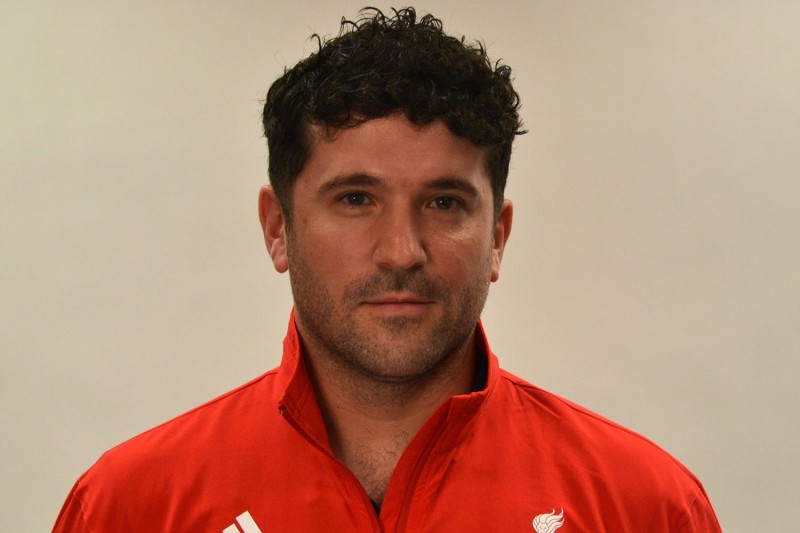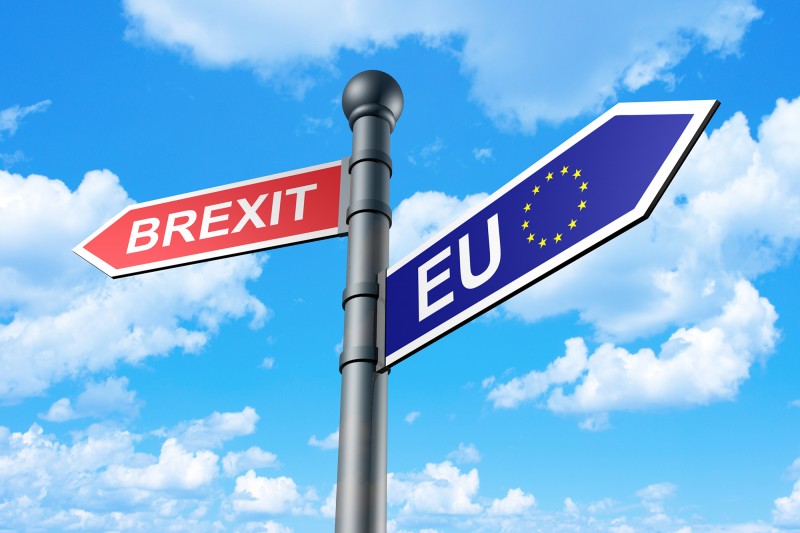Talk BU Live commemorated Armistice Day with a very special event entitled by Dr David McQueen. The twenty minute talk was entitled, “How should we commemorate the 100th anniversary of the First World War?”.
David spoke about the representation of the Great War in film, television and media, before going on to question the politically-led reframing of the conflict in light of the centenary. He concluded by asking whether we should be celebrating acts of peace rather than glorifying war .
Video highlights from the event can be found on the Bournemouth University YouTube channel or read on for the full talk.
How should we commemorate the 100th anniversary of the First World War?
2014 marks the 100th anniversary of the outbreak of the First World War and there has been some controversy about how we should commemorate what is sometimes referred to as ‘The Great War’ or what those who survived it hoped would be ‘the war to end all wars’. In this short talk I want to explore the nature of this controversy – and look at competing histories and mediations of the 1914-18 war which shape our memory of the conflict, as well as our attitude to more recent or contemporary wars. The talk will end by asking how we might most respectfully commemorate such as destructive event in world history.
I want to begin briefly with the question of poppies and whether to wear one or not. In November 2013 newsreader Charlene White refused to wear a Remembrance Day poppy whilst presenting an ITV News London bulletin. She argued that, "I prefer to be neutral and impartial on screen so that one of those charities doesn't feel less favoured than another." Charlene consequently faced racist and sexist abuse on Twitter for her decision.
In 2006 Channel 4 newsreader Jon Snow also refused to wear a poppy onscreen for the same reason. He noted that, “There is a rather unpleasant breed of poppy fascism out there - 'He damned well must wear a poppy!'. "Well I do, in my private life, but I am not going to wear it or any other symbol on air." (BBC 2006)
At the time the BBC’s John Humphries criticised Snow for his decision and said on the record,
"The reason I wear the poppy is because I want to pay tribute, it is a mark of respect for those men who gave their lives so that I can live the way I do today - to protect my freedom” […] "And if there is anybody in this country who does not feel that gratitude then I think they should feel vaguely ashamed of themselves."
What this reminds me of is the situation in the US in the weeks after 9-11 when newsreader came under pressure to wear flag pins on their lapels. It is clearly a contentious political issue, but it also goes to the heart of how we should remember the war. Anti-war groups like Peace Pledge Union sell white poppies to acknowledge civilians killed in modern warfare. There are also black poppies which according to the Stop the War Coalition ‘commemorate all those who have died due to imperialist war and its legacy: dead soldiers, dead civilians and dead conscientious objectors’. So to wear a poppy or not and even the colour of the poppy can express a political perspective on the First World War and war in general.
In a visit to Germany last week I was surprised to see there was almost no sign of commemorations and nobody was wearing a poppy or its equivalent despite the fact that they lost almost twice as many men (1.7 million compared to Britain’s 900,000).
In Berlin I came across one interesting exhibition at the German Historical Museum - only open for six months. Other than this exhibition the only other material on the war I saw came from British organisations, such as The Shakespeare Society. When I asked students at Jena University why this was, they were not sure but suggested that it might be because they had lost the war. So if remembrance is not about gloating over victory what is it about?
And how do we learn about this war so that we never allow a loss of life on this scale to happen again? In the last five years we have been dependent for our memory of the war on second hand sources. The last British survivor of the World War I trenches, Harry Patch, died at the age of 111 in July 2009.
So what did Harry Patch have to say about his time at the front? For more than 80 years he would not talk about his war time experiences, refusing to attend regimental reunions and avoiding any war films which appeared on the television.
In 2006 he famously told Prime Minister Tony Blair that, “War is organised murder, nothing else” and said that for him the annual November 11th Remembrance events are “just show business.”
Since the death of Harry Patch, we rely now only on recorded testimony, the work of historians and media representations for our image of the regular British soldier (the Tommy) as well as officers, generals and the High Command, as well as images of ‘the enemy’.
Those histories and those mediated images of the war have always been contested. We can look at the role of the press, particularly newspapers like The Daily Mail, in whipping up nationalism and war fever in the run up to 1914 and the role the mass media played in the propaganda front, both at home and abroad (particularly the US), and behind enemy lines. We could also look at the role of photography and silent cinema in constructing images of the Tommy and the enemy, which endure today.
The very technologies used helped shape our understanding of the war. Colour photography existed but was rare at the front and ordinary soldiers were forbidden from owning or using cameras at the front from 1916 as it was feared that images of the carnage at the front might weaken morale. Silent films, such as the documentary The Battle of the Somme (1916) which was seen by twenty million people in the two months after its release (including the Royal family in Windsor) were hugely popular. Soldiers complained, however, that these films were unable to capture the terrible, deafening noise of war.
One of the first films to do this was All Quiet on the Western Front made in 1930 based on the hugely successful anti-war novel of Erich Maria Remarque written in Germany in 1929. The book has been banned in many countries mobilising for war including by the Nazi Party in 1933 who publicly burned it. The book and the film, directed by Lewis Milestone, follows a group of young German recruits in WW1 through their passage from patriotic idealism to disillusionment.
The film and the book capture the anti-war mood felt ten years after ‘the war to end all wars’ had resulted in 37 million casualties worldwide. It is a rare example of an anti-war film in that it shows that wars in general are political fabrications which are unnecessary and futile. Most war films by contrast may show war as hell but ultimately show the fight as necessary and important and, in some way, worth the sacrifice.
And we see this fundamental difference in the perspective between the war film and anti-war film in the contested histories and representations that follow Lewis Milestone’s landmark film. We see the rising popularity of war poets such as Wilfred Owen and Siegfried Sassoon’s who were highly critical of the heroic, patriotic narratives of war. Sassoon, who was an enthusiastic patriot at the start of the war threw his Military Cross into the Mersey in 1917 as an act of wilful defiance of military authority.
He wrote of the war memorial at Menin Gate in Belgium.
“Who will remember, passing through this Gate
the unheroic dead who fed the guns?
Well might the Dead who struggled in the slime
Rise and deride this sepulchre of crime.”
We also see ordinary soldier’s memories of the war passed on in poignant songs such as ‘Pack Up Your Troubles’ and ‘It’s a Long way from Tipperary’ (originally a love song written in 1912).
These songs were captured in a BBC Home Service programme made by Charles Chilton made in 1961 called The Long Long Trail which a colleague Hugh Chignell spoke about in a recent Radio 4 documentary which you can hear online. This programme was the result of Charles Chilton's personal quest to learn about his father who was killed at Arras in March 1918, aged 19, and whom he had never met. Charles Chilton went on to collaborate with director Joan Littlewood and the cast of Theatre Workshop into the landmark stage musical Oh What a Lovely War. Another important influence on Oh What a Lovely War was Alan Clark’s history of the British High Command in World War One called The Donkeys written in 1961. Although Clark was a conservative historian and went on to be a Minister of Defence in Mrs Thatcher’s Conservative government it is highly critical of the army High Command.
The Donkeys (1961), covers Western Front operations during 1915, and ends with the dismissal of Sir John French as Commander-in-Chief of the British Expeditionary Force, and his replacement by Douglas Haig. Clark describes the battle scenes and criticises the actions of almost all the generals involved in the heavy loss of life that occurred. He also describes the political manoeuvres behind the scenes as commanders jostled for influence. Clark does not reflect on Haig's performance as Commander-in-Chief or on the battles of 1916 and 1917.
The book's title was drawn from the expression "Lions led by donkeys" which has been widely used to compare British soldiers with their commanders. In 1921 Princess Evelyn Blücher published her memoirs, which attributed the phrase to the German GHQ in 1918. Parts of The Donkeys was included in Oh What a lovely War - particularly the manoeuvring behind the scenes and after legal action Clark was able to get some royalties from Joan Littlewood’s production. Aspects of the critical account of the performance of the Generals which emerged in various histories were included in the BBC’s masterful 26 episode The Great War, although one of the historical advisors Liddell Hart resigned blaming the co-script writer for minimising the faults of the High Command on The Somme.
BBC is showing The Great War as part of the 2,500 hours of programming for its First World War anniversary season over the next four years and I recommend you see it. It may also show The Monocled Mutineer (1986) if certain rights issues are dealt with. The Monocled Mutineer which dealt in fictional form with the real mutinies that occurred on the front was seen by ten million but accused of exemplifying the BBC’s ‘left-wing bias’ by some critics.
This programme, Oh What a Lovely War and Black Adder were singled out by former Education Minister Michael Gove in January 2014 as exemplifying ‘existing Left-wing versions of the past designed to belittle Britain and its leaders’. Gove was writing in The Daily Mail in response to an article by Michael Murpurgo author of The War Horse.
Former Education Minister Michael Gove’s attack in January 2014 on 'Blackadder myths’ about the First World War forms part of a concerted political and cultural effort to overturn historical and popular accounts of the catastrophic 1914-18 war. This radical reframing of the conflict as a ‘just war’ presents a head-on challenge to accounts of the war as a ‘misbegotten shambles’ and the enduring, class-based narrative of ‘lions led by donkeys’ which still holds sway in the popular imagination.
For Gove and others keen to refashion bitter memories of pointless slaughter as ‘myths’ there has been an ideologically-motivated reassessment of the war as a noble defence of the western liberal order, rather than ‘a series of catastrophic mistakes perpetrated by an out-of-touch elite’. The representation of British military and political leaders as heartless and incompetent ‘donkeys’ sending brave soldiers into unwinnable battles along an endless front reverberates dangerously in the 21st century.
The counterproductive military intervention in Afghanistan and the bloody debacle of Iraq uncomfortably echo the tragedy and hollow victory of ‘the Great War’ a decade on from the launch of a War on Terror. The chaos unravelling in Iraq, Syria, Afghanistan and elsewhere may, therefore, provide some explanation for why this First World War centenary has been marked by revisionist accounts emphasising the patriotism and courage of those who fought and the ‘intelligence and nobility’ of those who led them.
In recent speeches, articles and television news reports politicians, historians and journalists have recast the misunderstood Generals who ‘won the victory’ as patriotic leaders ‘grappling honestly with the new complexities of industrial warfare’ rather than the idiotic ‘butchers’ of popular imagination. What is left out of this account is the role of struggles by anti-war movements – marginal in Britain but significant in Germany and Russia which both witnessed popular uprisings.
Channel 4’s Paul Mason reminds us how it was sailors in the German ports – Hamburg, Kiel, Wilhelmshaven which led the workers’ uprising that eventually overthrew the Kaiser. Few British people are aware of exactly how the First World War ended and if they did they might consider the history of Britain’s military successes in a more limited and nuanced way.
And so we return to the contested nature of history and representation when recalling the Great War. The context this year I feel has sharpened the divisions between those who want to recall all the dead of this senseless war and those who only want to remember those ‘who died for their country’. That context is the end of conflict in Afghanistan (2001-2014) which officially came to a close on the 26th October with the lowering of the Union flag over Camp Bastion in Helmand province.
David Cameron said: ‘We will always remember the courage of those who served in Afghanistan on our behalf and never forget those who made the ultimate sacrifice’.
But critics of the endless war on terror have asked what was achieved in 13 years? And what was the cost? These are the same questions we ask about the Great War and our answers to this define us politically and suggest how we might remember it.
When announcing in 2012 major plans to fund and organise four years of commemoration, Prime Minister David Cameron said he looked forward to “A commemoration that captures our national spirit in every corner of the country... that, like the Diamond Jubilee celebrations this year, says something about who are as a people.”
Cameron like Gordon Brown and Tony Blair before him shared a concern about the increasing drift of British public opinion towards pacifism. It was one of the reasons they commissioned the Report on the National Recognition of UK Armed Forces (in 2008). This identified a lack of public understanding of the military due to decreased “familiarity”.
The Brown government’s response was to recommend a range of measures including celebratory home-coming parades, encouraging soldiers to wear uniforms in public and greater military presence in secondary schools and national sporting events.
For Cameron an important symbolic gesture will be the laying of Commemorative paving stones in the birth places of members of the British Empire forces who received the Victoria Cross for their bravery in World War I. 430 men awarded the Victoria Cross will have their name enshrined in a paving stone in their home town.
There are, however, no plans for those who opposed or questioned the industrial slaughter of World War I. These include women’s activists, Christians, political radicals, workers who went on strike and soldiers who mutinied.
My recommendation to respectfully remember the war is to celebrate at Christmas those brave soldiers who in the 1914 truces, disobeyed orders and fraternised with the enemy. They sang shared songs such as Silent Night/Stille Nacht and drank and played games together.
The Christmas truce represented a grave threat to high command of both German, French and British armies. Soldiers were ordered to resume fighting but when they did they deliberately missed, not wanting to be the first to break the truce. Officers and soldiers were replaced with men who had not been ‘contaminated’ by the truce
This letter from Sergeant George Ashurst, 2nd Battalion, Lancashire Fusiliers about the passive resistance by soldiers on the front shows, I think, why the High Command were indeed the donkeys of popular memory:
“Anyway, the generals behind must have seen it and got a bit suspicious, so they gave orders for a battery of guns behind us to open fire and a machine-gun to open out, and officers to fire their revolvers at the Jerries. That started the war again. We were cursing the generals to hell. You want to get up here in this mud. Never mind you giving orders in your big chateaux and driving about in your big cars. We hated the sight of generals, we always did. We didn’t hate them so much before this, but we never liked them after that.”
My recommendation to respectfully remember the war is to do what Michael Murpurgo suggested and celebrate the peace. And work towards ensuring no other conflict of this kind can happen again.
(With thanks and acknowledgement to Stop the War Coalition who will be talking about the legacy of the war Afghanistan in the Wallace Lecture Theatre on Thursday 13th November at 6pm)



